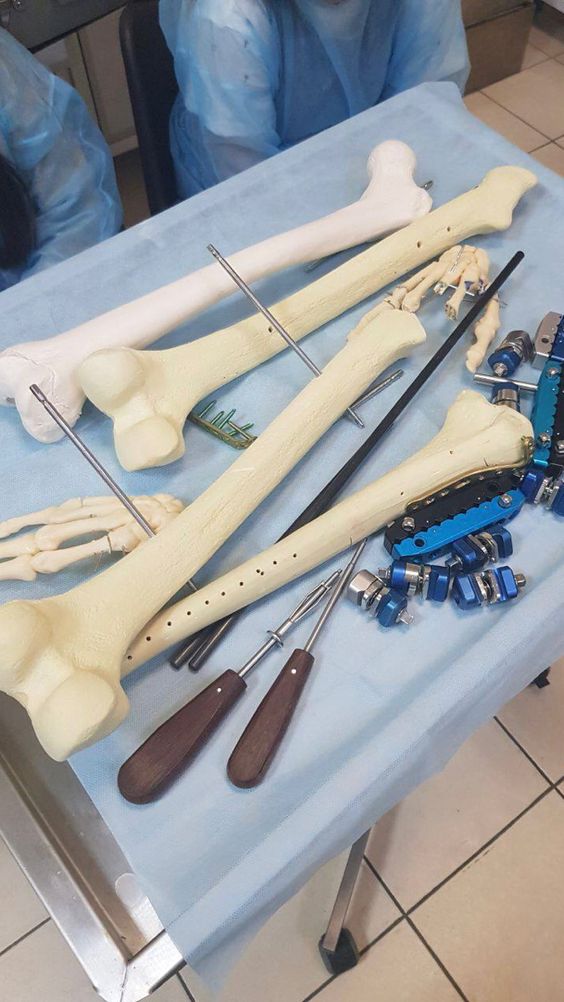Precision Medicine: The Future of Disease Prevention and Management

Precision medicine has emerged as a groundbreaking approach to healthcare, offering customized and targeted treatments tailored to the unique characteristics of each individual. As we look ahead, it’s evident that precision medicine holds the key to transforming disease prevention and management. This article explores the role of precision medicine in shaping the future of healthcare, focusing on its potential to revolutionize disease prevention and management strategies.
Understanding Precision Medicine
Precision medicine, also known as personalized or genomic medicine, is a healthcare approach that takes into account individual differences in genes, environment, and lifestyle when developing treatment plans. By leveraging advancements in genetics, technology, and data analytics, precision medicine aims CNC lathe tools to deliver the right treatment to the right patient at the right time.
1. Customized Treatment Plans
One of the primary goals of precision medicine is to develop customized treatment plans tailored to the specific genetic makeup and characteristics of each patient. By analyzing a patient’s genetic profile, healthcare providers can identify targeted therapies that are more likely to be effective and minimize the risk of adverse reactions.
2. Early Disease Detection
Precision medicine also plays a crucial role in early disease detection and prevention. By analyzing genetic and other biomarkers, clinicians can identify individuals at higher risk of developing certain diseases and intervene early to prevent or delay disease onset.
3. Personalized Risk Assessment
Another key aspect of precision medicine is personalized risk assessment. By analyzing an individual’s genetic and lifestyle factors, healthcare providers can assess their risk of developing various diseases and tailor prevention strategies accordingly.
The Future of Disease Prevention
Precision medicine holds immense promise for the future of disease prevention, offering new opportunities to identify, assess, and mitigate health risks before they escalate into full-blown illnesses.
4. Genetic Screening Programs
Genetic screening programs can help identify individuals at increased risk of developing hereditary conditions such as cancer, cardiovascular disease, or diabetes. By offering genetic counseling and targeted interventions, these programs can empower individuals to take proactive steps to reduce their risk of disease.
5. Lifestyle Interventions
Precision medicine also emphasizes the importance of lifestyle interventions in disease prevention. By analyzing an individual’s genetic predispositions and lifestyle factors, healthcare providers can recommend personalized diet, exercise, and behavior modifications to optimize health and reduce disease risk.
6. Targeted Vaccination Strategies
Precision medicine enables targeted vaccination strategies tailored to individual immune responses and genetic factors. By identifying genetic variations that influence vaccine efficacy, researchers can develop more effective vaccines and vaccination schedules to protect against infectious diseases.
The Future of Disease Management
In addition to its role in disease prevention, precision medicine is poised to revolutionize the management of chronic and complex medical conditions.
7. Personalized Treatment Selection
Precision medicine allows for the selection of personalized treatment regimens based on an individual’s genetic profile, disease subtype, and treatment response. By matching patients with the most effective therapies, precision medicine can improve treatment outcomes and quality of life.
8. Targeted Therapies
Precision medicine offers targeted therapies that address the underlying molecular mechanisms driving disease progression. By identifying specific genetic mutations or biomarkers, clinicians can prescribe medications that target disease-specific pathways, minimizing side effects and maximizing treatment efficacy.
9. Disease Monitoring and Surveillance
Precision medicine facilitates disease monitoring and surveillance through the use of biomarkers and advanced imaging techniques. By tracking disease progression in real-time, healthcare providers can adjust treatment plans as needed, optimizing patient outcomes and minimizing complications.
Conclusion
In conclusion, precision medicine represents the future of disease prevention and management, offering personalized, targeted, and effective healthcare solutions. By leveraging advancements in genetics, technology, and data analytics, precision medicine holds the potential to revolutionize how we prevent, diagnose, and treat diseases, ushering in a new era of personalized medicine.
FAQs
- What is precision medicine? Precision medicine is a healthcare approach that tailors treatment plans to the individual genetic, environmental, and lifestyle characteristics of each patient.
- How does precision medicine impact disease prevention? Precision medicine enables early disease detection, personalized risk assessment, and targeted interventions, empowering individuals to take proactive steps to reduce their risk of developing various diseases.
- What role does precision medicine play in disease management? Precision medicine offers personalized treatment selection, targeted therapies, and disease monitoring strategies to optimize patient outcomes and improve quality of life for individuals with chronic or complex medical conditions.
- How can precision medicine benefit patients? Precision medicine offers personalized, targeted, and effective healthcare solutions that improve treatment outcomes, minimize side effects, and enhance quality of life for patients.
- What are the challenges facing the adoption of precision medicine? Challenges include data privacy and security concerns, disparities in access to precision medicine services, and the need for ongoing research, innovation, and collaboration to realize the full potential of precision medicine.





